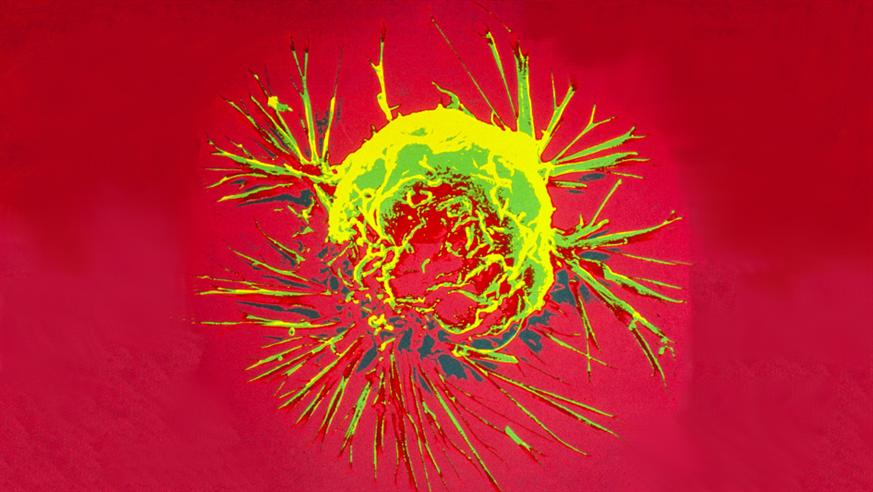
A breast cancer cell (photo: National Cancer Institute)
An experimental drug could be used in combination with chemotherapy as a treatment for breast and other cancers, new research shows.
Scientists at The Institute of Cancer Research, London, tested a compound that blocks an important protein which has been found to be altered in a range of cancer cell types.
They found that the experimental drug, which was discovered at the ICR, caused cancer cells to divide too early – producing cells with major DNA errors, leading to cell death.
In the study, the scientists treated 91 cancer cell lines with the compound, called CCT271850.
They found that more than half the cell lines were sensitive to MPS1 inhibition, with colon cancer, head and neck cancer and breast cancer cells particularly so.
A 'brake' on cell division
The study was published in the British Journal of Cancer and funded by Cancer Research UK and Breast Cancer Now. It is part of a programme of research to discover and develop new MPS1 inhibitors, led by the ICR and supported by the Cancer Research Technology Pioneer Fund.
MPS1 acts like a brake on cell division in cells, giving them time to properly form the correct cell structure before division occurs.
Cancer cells often have different amounts of DNA, due to errors in DNA replication or via faulty divisions, and these cells are more dependent than healthy cells on proteins like MPS1 that oversee division. Blocking MPS1 could therefore selectively cause cancer cells to divide too quickly, causing fatal DNA errors that lead to cell death.
The experimental drug is very potent, but the study shows enhancing its effect with current therapeutic drugs could promote more effective tumour reduction.
A potential new therapeutic target
The findings identify the potential of MPS1 inhibitors as a new way to target cancer and suggest it should be used as a combination treatment for diseases like breast cancer.
Study Leader Professor Spiros Linardopoulos, Team Leader in Drug Target Discovery at the ICR, said: “Our study gives an important proof-of-concept that we can target MPS1 effectively in the clinic, in combination with other drugs. It paves the way for combination studies of drugs in cancers including triple negative breast cancer, and we hope to progress our work into a clinical trial soon.
“It’s gratifying to see a long-running research programme at the ICR to discover MPS1 inhibitors take another step towards helping to treat people in the clinic.”